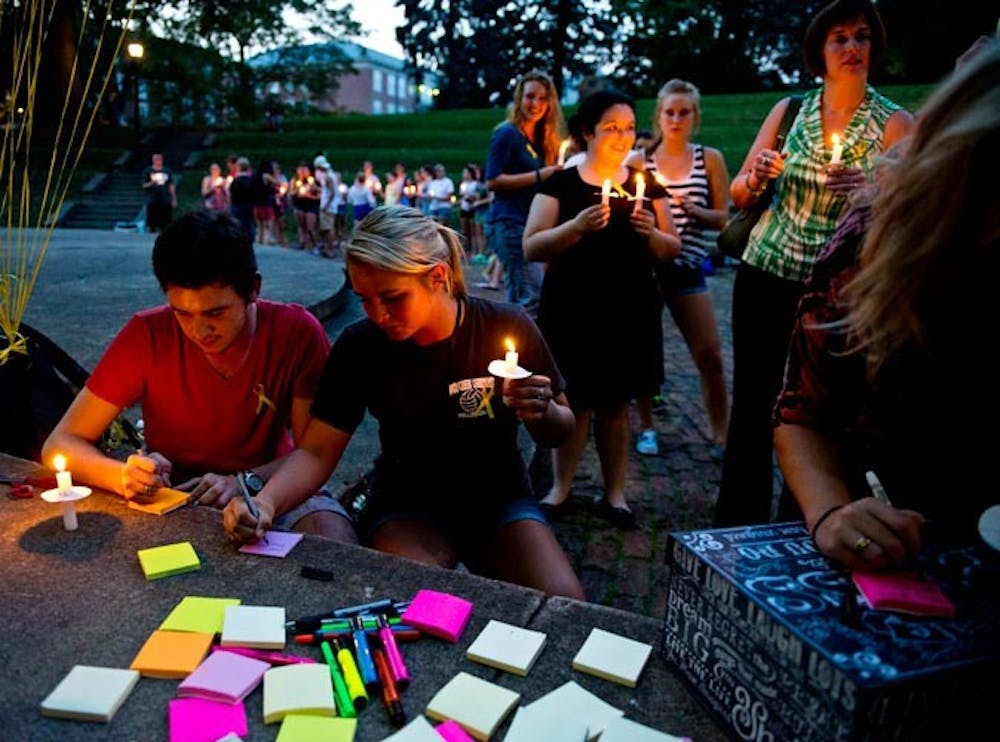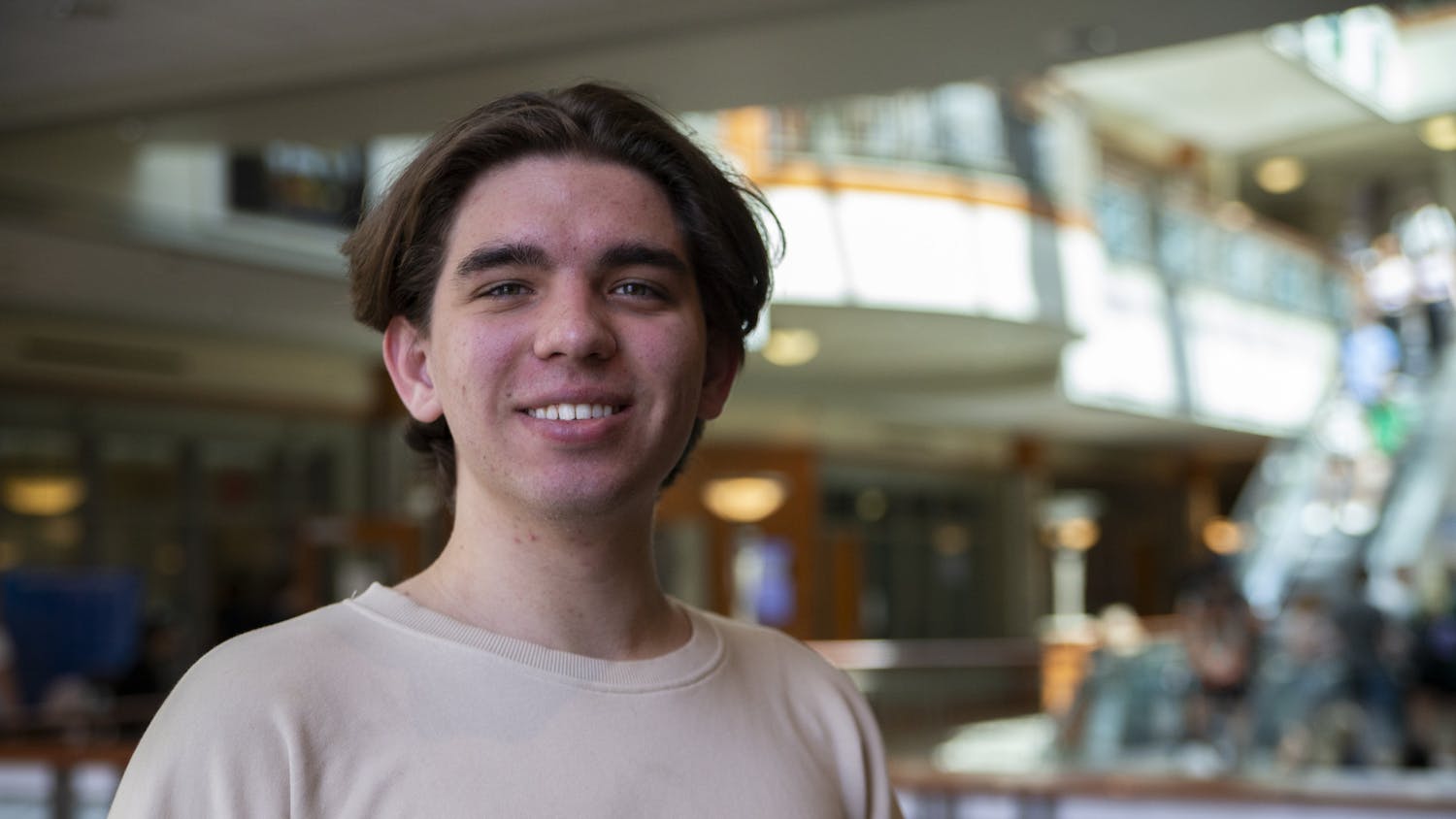Lillian Douds wants people to talk about suicide so they can break “a cycle that never ends.”
Douds, a senior studying communication sciences and disorders, is the president of Bobcats For Suicide Prevention, an Ohio University group that seeks to spread awareness and break down the stigma surrounding mental health.
Many of the 20 to 30 members of Bobcats For Suicide Prevention got involved with the group because they have felt or seen the effects, both on and off campus, that come from someone dying by suicide.
“It kind of rocks the whole campus for a while, especially the people who are involved,” Douds said. “It just changes you for a bit, and you wonder where the indication was.”
She said the cycle starts when, following a suicide, people grieve and talk about what happened. Then, after a few weeks, everything returns to normal, and the word “suicide” becomes taboo again.
Not talking about suicide or other mental health problems contributes to the cycle, Douds said. She thinks shutting down conversations about suicide make people feel uncomfortable about seeking help from mental health professionals.
“I think it’s something a lot of people hear during orientation,” she said. “They hear ‘hey, there’s this option for you,’ but (the services available are) not stressed. A lot of people don’t feel like they can come forward because they think it’s just part of college. They think, ‘oh, I’m sad and depressed because school is stressful, and that’s college.’ ”
About 10 percent of college students on any campus will consider dying by suicide in the coming year, Fred Weiner, the director of Counseling and Psychological Services at OU, said. Statistically, that means more than 2,000 students at OU will think about suicide as an option.
Even though there are several groups and resources on campus for students who need support, more people still need to get involved in the process to start “breaking the cycle,” Douds said.
Bobcats Who Care, for example, is a “gatekeeper program” that sets out to train students on campus to recognize and reach out to someone in crisis.
“We want to help them access help so they cope with and overcome the depression and despair that have led them to seriously consider dying by suicide,” Weiner said in an email.
However, Weiner said there is “absolutely” a need for more students to get involved in the process, since so many times mental health professionals do not know about what the student is going through beforehand.
“Gatekeepers programs like Bobcats Who Care have emerged from some rather daunting and frightening statistics,” he said in an email. “What is especially disheartening is that 80 percent of college students who die by suicide are unknown to campus mental health professionals.”
The Athens-Hocking-Vinton Alcohol, Drug Addiction and Mental Health Services Board, also known as the 317 Board, is another resource to which people can turn. It works to “create a network of care for people who need treatment for mental illness or alcohol and drug addiction,” prevention coordinator Svea Maxwell said.
Eight full-time employees help run the 317 Board office. They evaluate programs and look at services to see how clients are using the resources from the board. However, Maxwell said learning more about mental health is important to a community.
“The Athens County Suicide Prevention Coalition welcomes new members from the community who would like to address suicide prevention,” Maxwell said in an email. “There is always a need for more members of any community to learn more about what they can do to prevent suicide.”
Douds, however, said getting people involved with something that carries such a strong stigma can be difficult.
“Even on campus, we would notice that at the Involvement Fair, there were some people who would look at our sign that would clearly say ‘suicide’ on it and look at it like it’s a bad word or something,” she said. “Suicide is a heavy topic, and it is hard. We don’t get as much participation as we may like. That may be because people are afraid of it, but I just want people to know about it and feel comfortable talking about it.”






